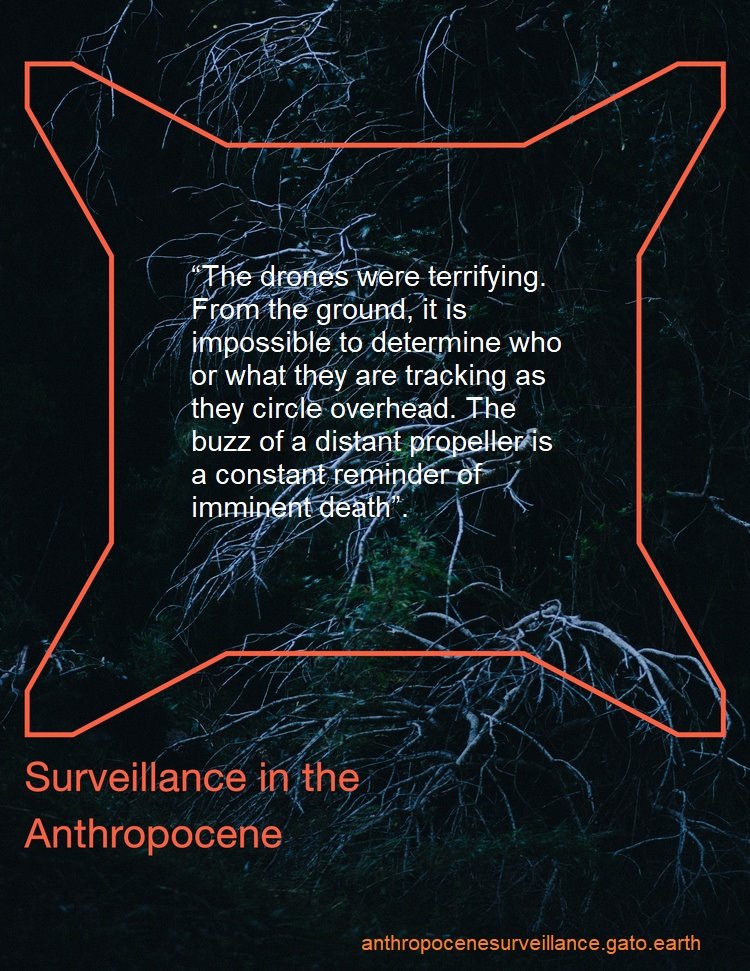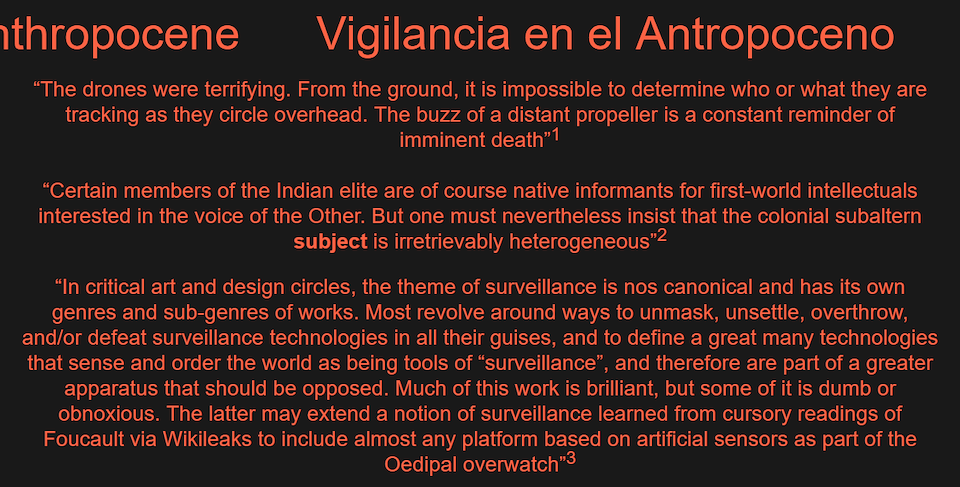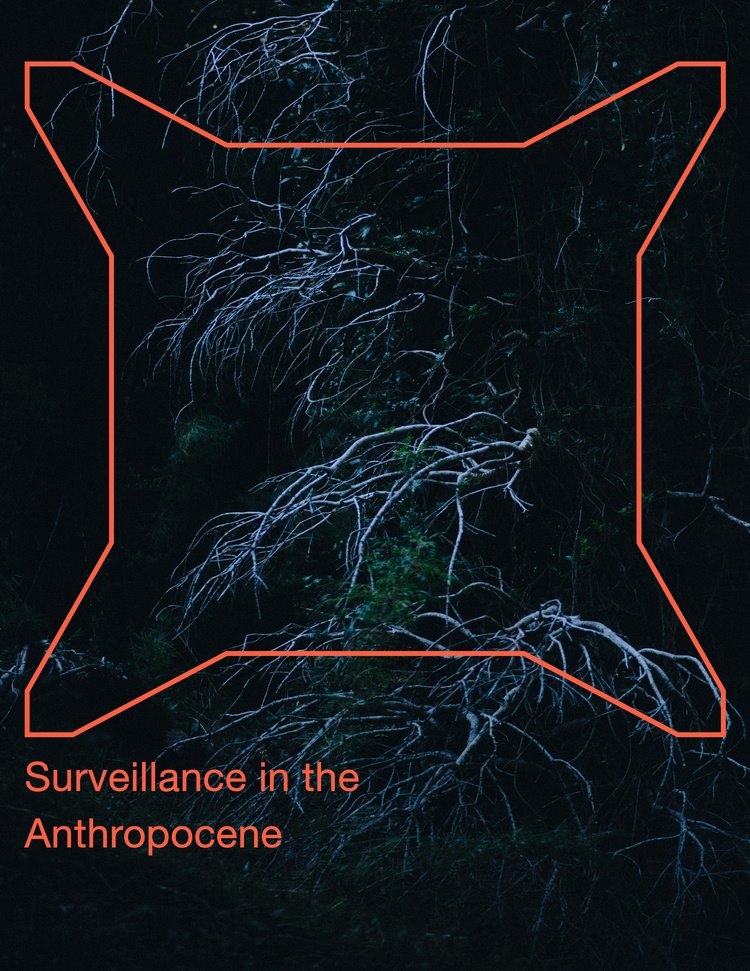Surveillence in the Anthropocene




The relation between digital technologies and the climate emergency can be approached from many different perspectives. In our newsletter we have covered issues such as lithium mining to build batteries, urban drought produced by big tech data centres, the enormous carbon footprint of blockchain technologies, and others.
For this project we explored surveillance as a crucial deployment to maintain extractivist industries. According to our research, methods of surveillance not only protect structural power relations but also affect people at grassroots levels in a very intimate dimension.
Our interest is to research the conditions of land defenders being subject to state and private surveillance, we focused on selected indigenous groups in Chile and Canada currently involved in environmental struggles. And even though the Chilean and Canadian context differ widely, a comparative examination of both situations allow us to identify the common capitalist aim of big extractivist corporations and demonstrate the overlap between land defenders and indigenous communities.
The reports we produced depict different implementations of surveillance against these indigenous groups, technologies such as social media monitoring, drones flying over the territories, heat detection cameras as well as media exclusion zones in which only the police is allowed to register events.
Still, beyond the technological details and the political arrangements that facilitate this global industry of surveillance, we consider it important to also address the effects of these practices. Our proposal is that this is a discussion that should not be approached only through technical and policymaking practices, and we are motivated by the many findings in which land defenders expand about a pervasive state of discomfort produced by the permanent and menacing presence of surveillance in their lives. Consequently, we are facing a sustained biopolitical attack that inevitably affects private lives and manifests in situations such as the land defenders in Canada expressing how forced they feel to act as a “perfect person” in order not to be framed with a judicial accusation, or Mapuche children identifying the police presence as a natural element in their lives to the point of even drawing repression machinery in their school assignments.
Despite this topic being a matter of human rights, these effects of surveillance cannot be tackled using only a legal approach, this is why we asked three artists to provide an interpretation of this issue using an artistic research perspective. This means the use of art practice as a source of knowledge production. We favour this method after years of investigating the current climate crisis and our certainty that this is a problem that needs to be addressed holistically and with an interdisciplinary lens.
Finally, an integral vision of the topic of indigenous land defenders being at the frontlines of the struggle against extractivist economies, allows us to realise that the physical and emotional health of individuals is not a limit for this destructive global enterprise and, at the same time, it allows us to understand how capitalism in the Anthropocene badly needs surveillance technologies for its survival.
-
Role Co-creator with Danae Tapia
-
Date 2022
Up Next: